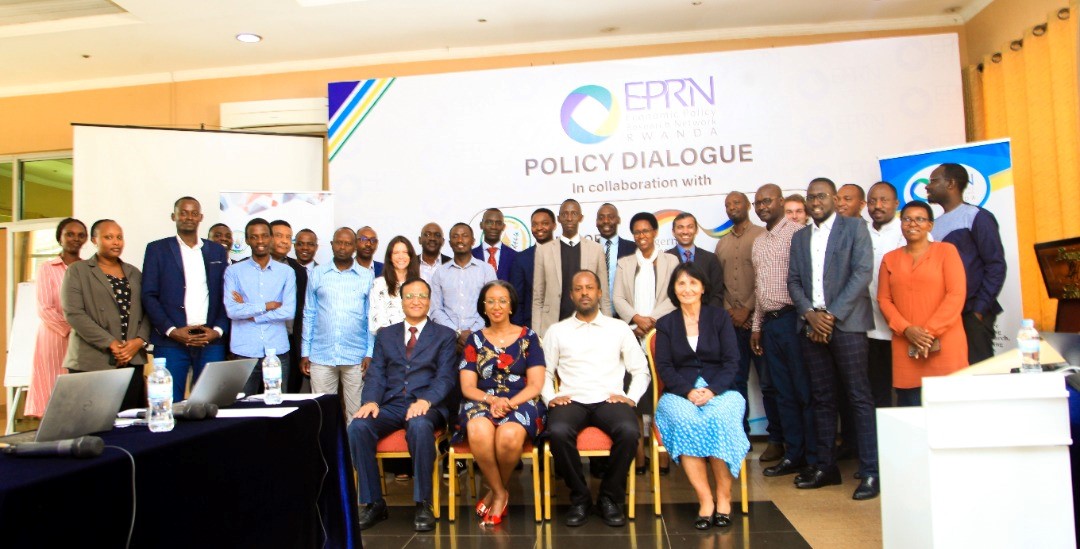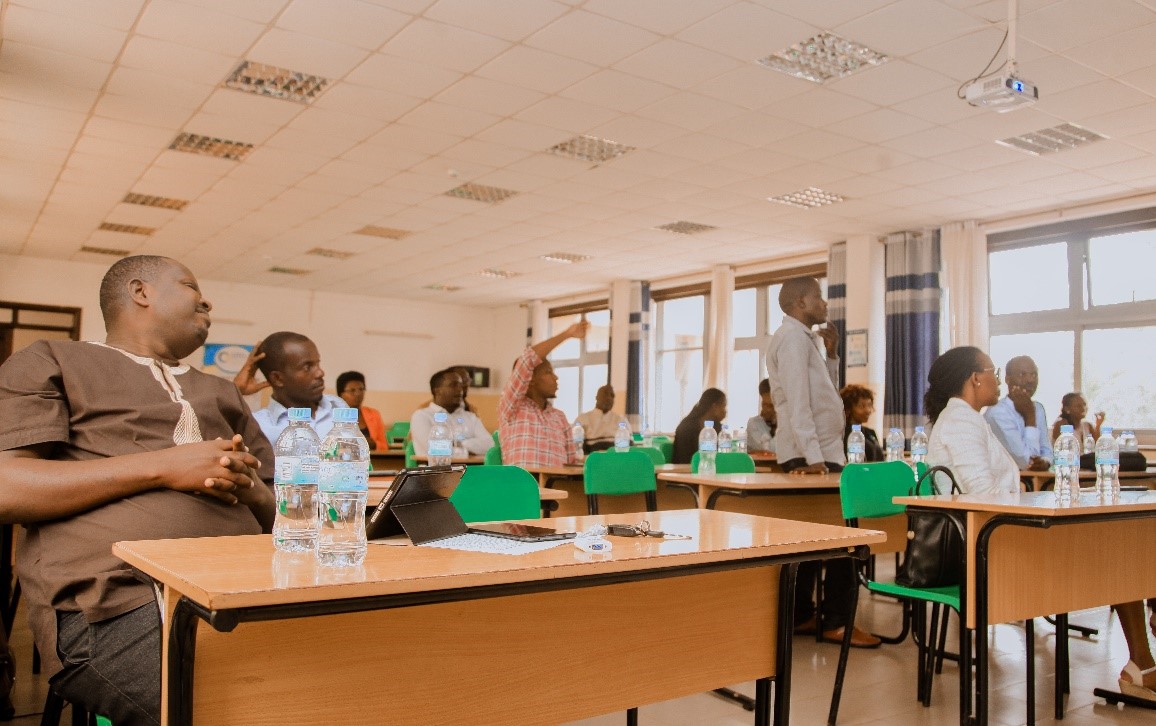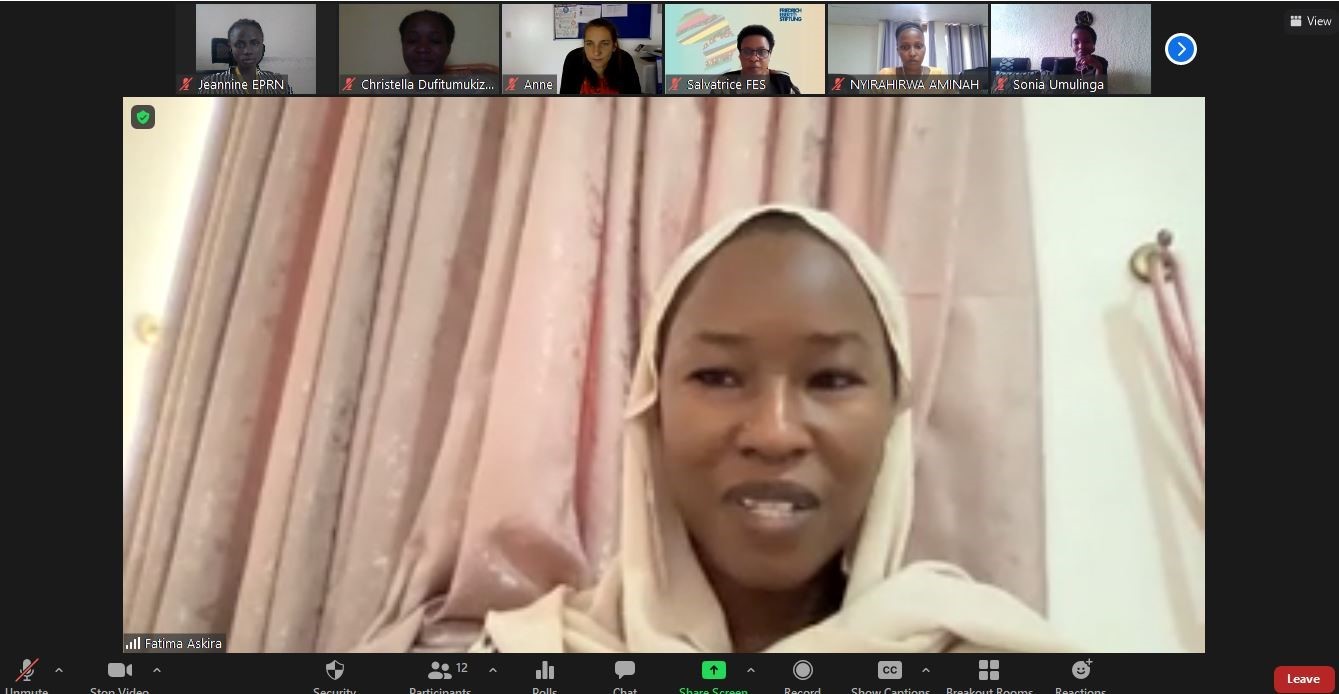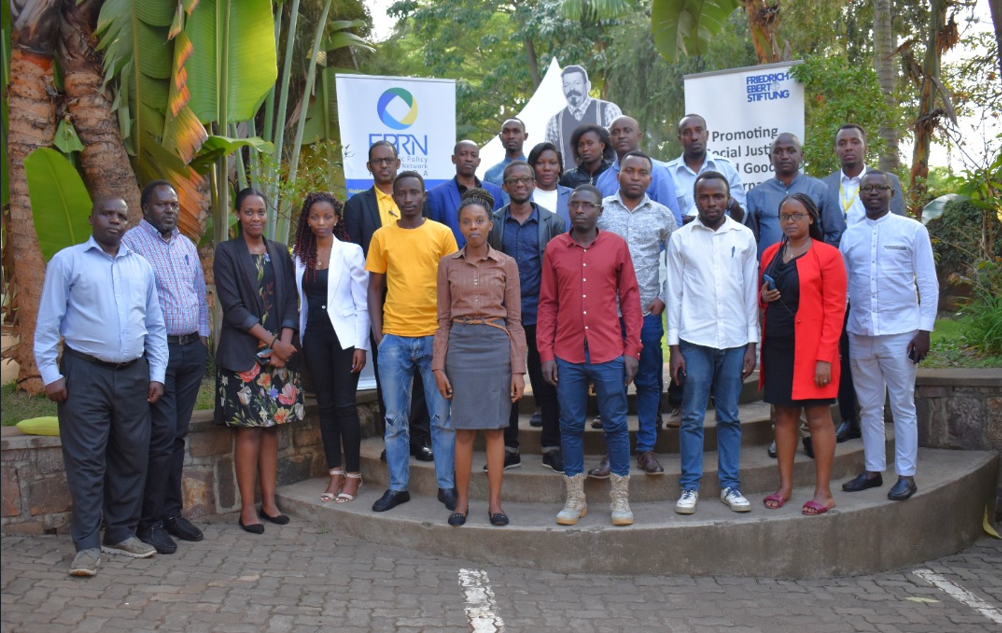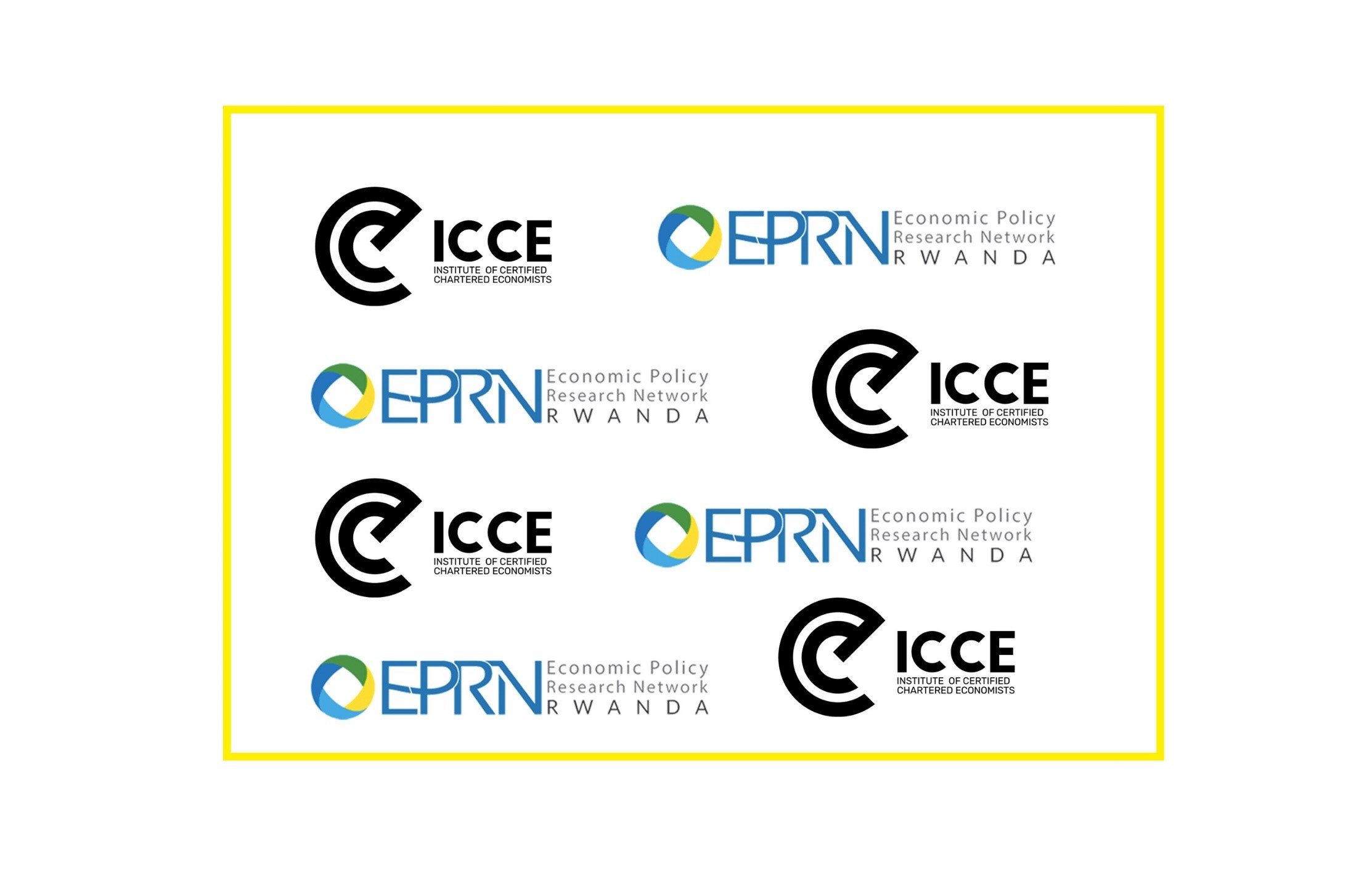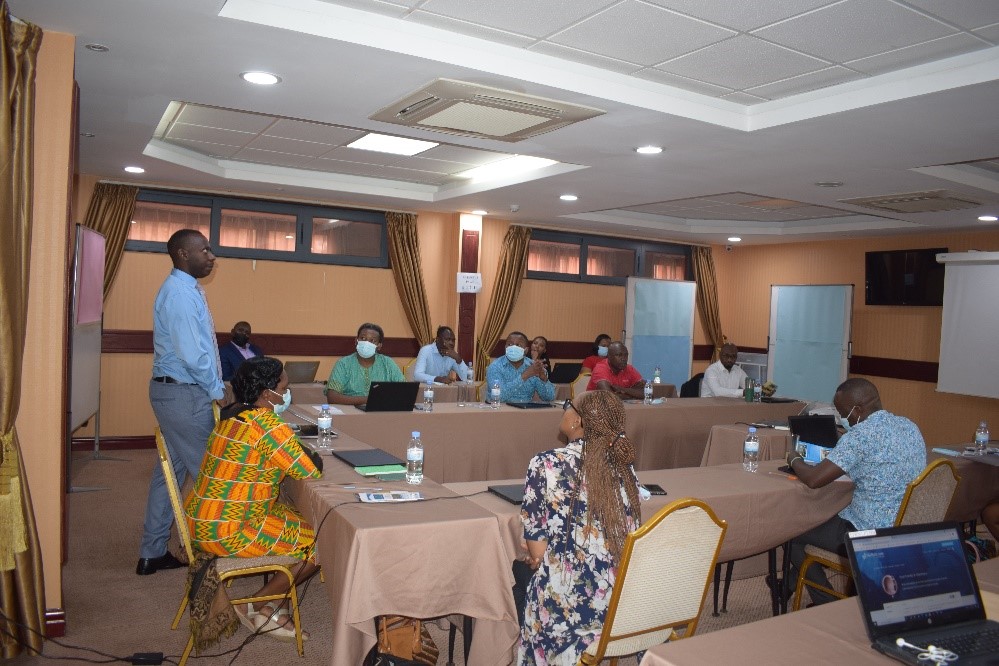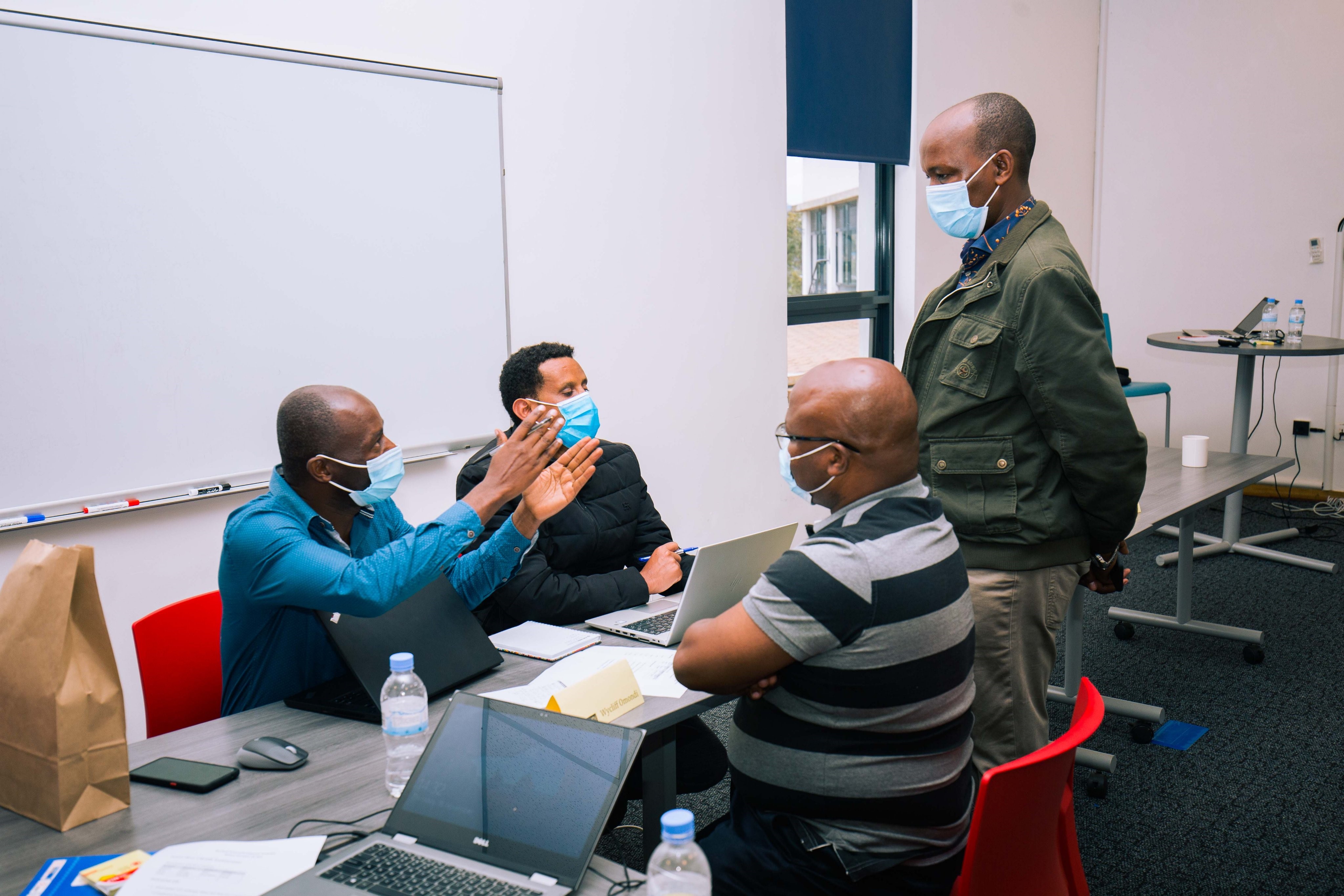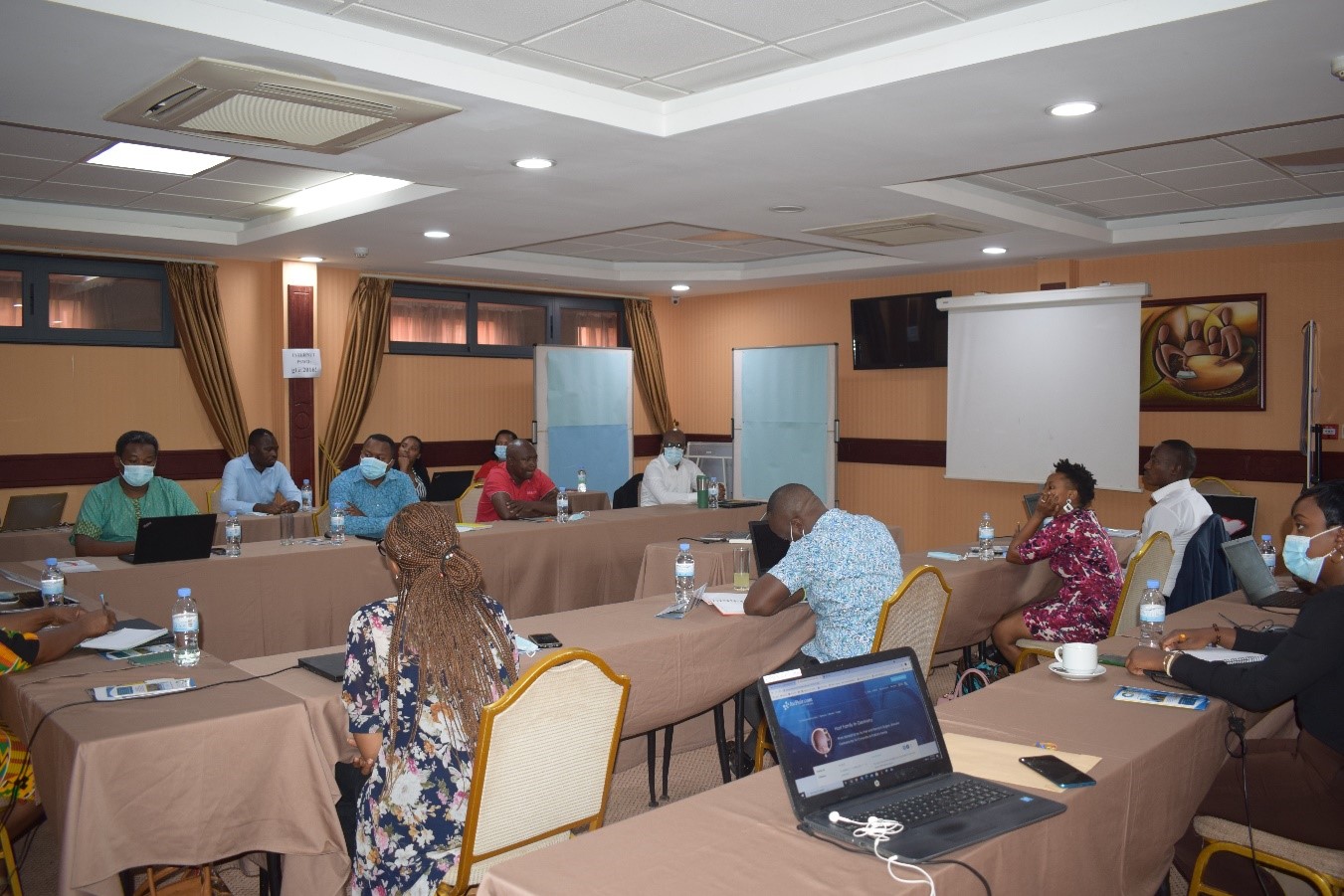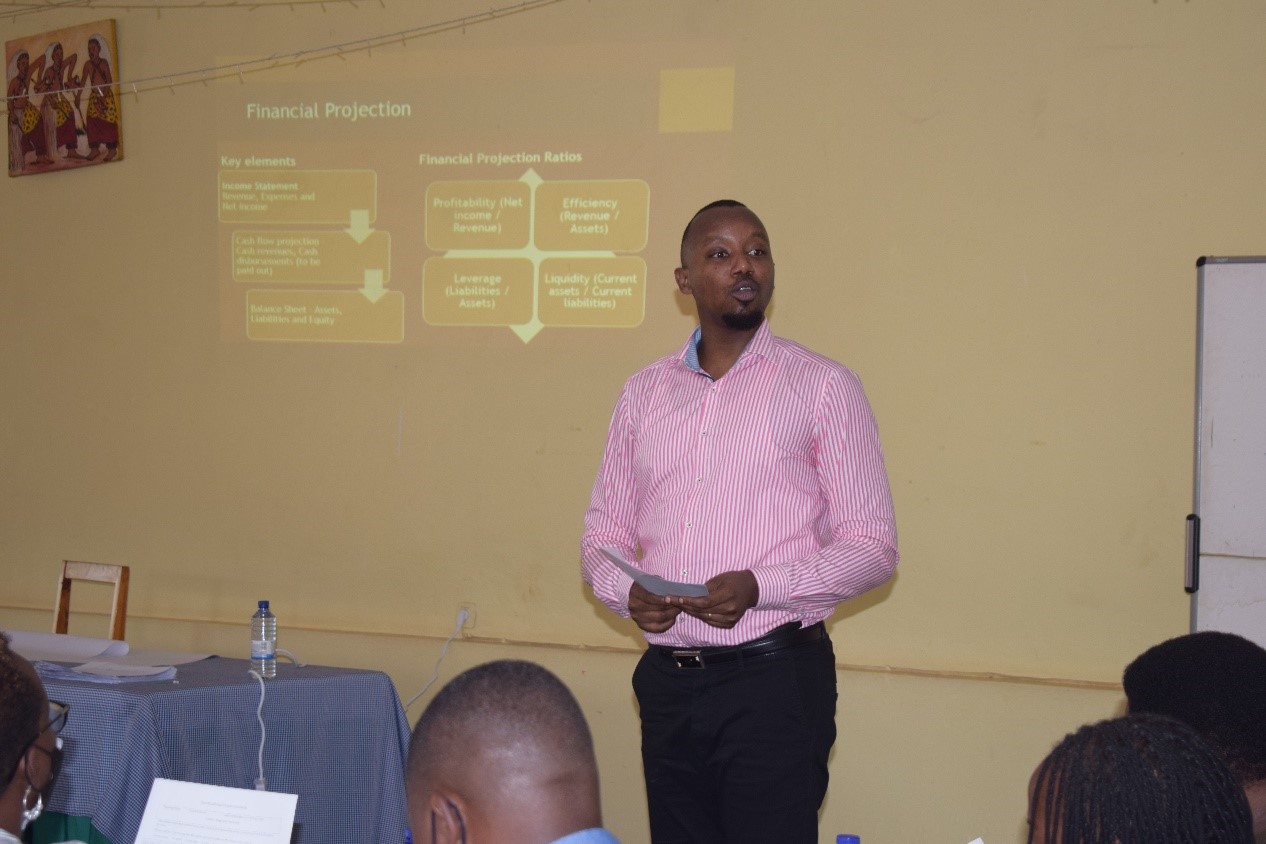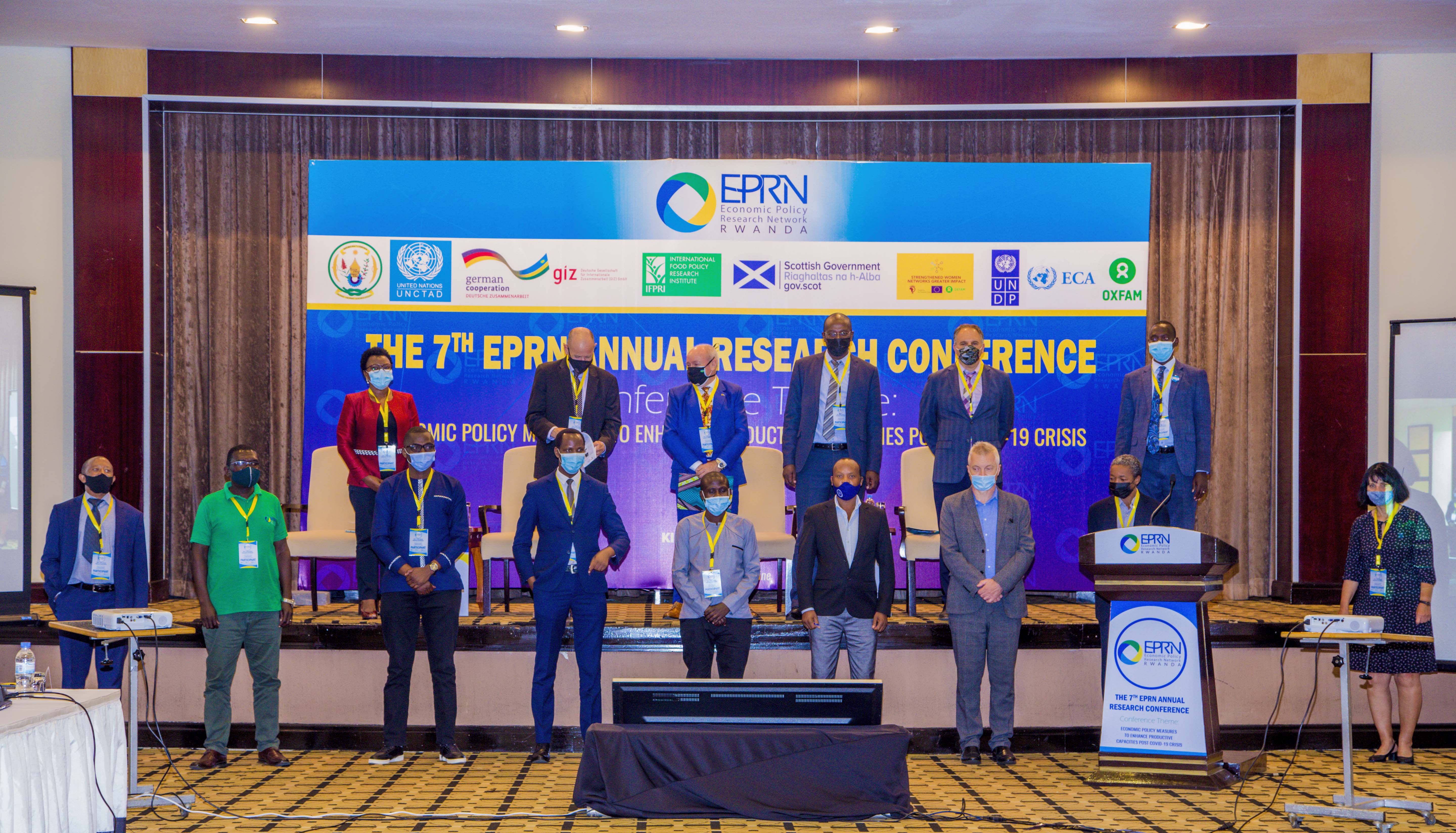Policy Dialogue on Requirements for Sustainable Growth
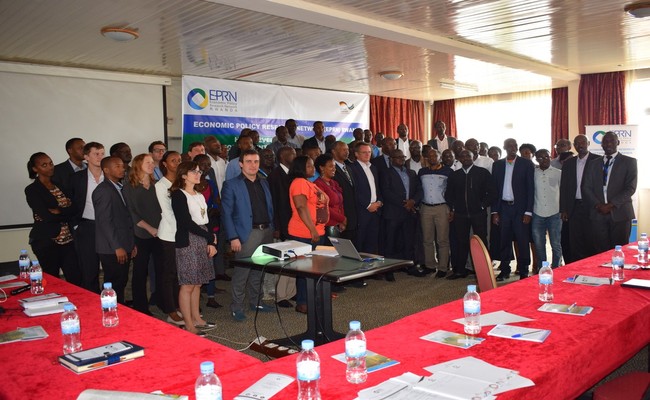
21th November 2017, 08:00AM - 05:00PM Kigali Umubano Hotel
Organized joinly by EPRN Rwanda and MINECOFIN
1. Introduction
The Economic Policy Research Network (EPRN) is a platform in Rwanda aiming at strengthening the capacities of individual economic policy researchers and organizations active in or with an interest in economic policy research and analysis. The objective is to create a network and support economic policy researchers through trainings on qualitative and quantitative research, coaching and mentorship as well as joint research projects. EPRN therefore responds to economic policy gaps resulting mainly from lack of quality and informative research and the challenge of human capacity in terms of limited numbers of economic researchers and active involvement. EPRN places thereby a special focus on the research potentials held by University students who are the nurseries for economic researchers and crucial players in shaping Rwanda’s future, which is why they should have part in discussions on policies and access to economic policy research networks such as EPRN.
It is in this regards that the Economic Policy Research Network (EPRN Rwanda) in collaboration with the Ministry of Finance and Economic Planning (MINECOFIN) and through financial support by GIZ Rwanda ; organized a high level policy dialogue on “the requirements for sustainable growth”. The event took place on 21st November 2017 at Umubano Hotel, Kigali.
2. Objectives of the dialogue
This high level policy dialogue had the aim to brainstorm on current indicators of Rwanda’s growth and identify the requirements for sustainable development towards preparation of the National Strategy for Economic Transformation and Vision 2050.
The high level policy dialogue was attended by more than 80 people from different institutions, both private sector, public sector, NGOs and individuals with different background and domain that together contribute to the economic growth of the country.
3. Opening remarks
In his opening remarks, Mr Leonard Rugwabiza, Chief Economist at MINECOFIN and Deputy Chairman of EPRN welcomed all participants. He reminded the purpose of the session which was to review the current growth indicator for our Country and what we should do to sustain our national development going forward.
4. Accounts of Proceedings
1st Session : Reflection on the current indicators of Rwanda’s economy
The first presentation was delivered by Prof Kasai Ndahiriwe, Director of Monetary Policy at BNR and Member to EPRN. He emphasized on the current indicators of our Country’s growth. Below are some of the content of his presentation :
Global Economy :
- In October 2017, the IMF revised up growth forecasts for the global economy to 3.6% from 3.5% forecast in July.
- Recovery in Sub-Saharan Africa driven by increasing commodity prices
- In EAC, economic growth remained resilient in the first half of 2017
National Economic Performance
- Expected good performance in 2017Q3(Increasing turnovers of industry and services sectors, Increase in commodity prices, Agriculture season B good harvest
- Leading indicators (CIEA) shows a continued improvement of economic activities (Good performance : 2017Q3>2017Q2>2017Q1, But lower on average compared to 2016)
- Trade deficit reduced by 22.6%, from USD 1302.10 million to USD 1007.0 million
- Jan – September 2017 compared to the same period of 2016 (Formal Exports +47.0% compared to 2.3%, Formal Imports -5.4% compared to -0.1%, Exports/Imports coverage from 24.8% to 38.6%).
- Pressure on exchange rate continued to ease with 2.63% against USD on 17th Nov due to : Reduction in import bill ; Reduction in demand for dollars by big companies like RwandAir and Improved export receipts in line with recovery in international commodity prices ;
- BNR continues to : Encourage banks to continue supporting the financing of the economy and Improve banks liquidity
- M3 growth increased to 9.6% in September 2017 from 7.6% in Dec 2016
- Slowdown in NAL and stock of CPS due to : Increase in NPLs ratio : 8.2% by end Sept.17 from 7.5% by end Dec 16th and Lower demand of loans as result of subdued economic activities.
- Due to improved liquidity management, money market interest rates have been recently declining and remaining close to the KRR
- Currency in circulation ratio declined since 2016 due to mainly ongoing modernization of payment systems
Economic Outlook
- Real GDP growth to improve : Good agricultural production due to good weather- improvement in food supply, Improvement in services and industry sectors - rising trend of CIEA and turnovers, Improvement in Credit to the private sector
- Aggregate demand & inflation to remain subdued
- Monetary policy likely to remain accommodative
Hindrances to the Economic Growth
- Increase in non-performing Loans (NPLs) ratio, from 7.5% in December 2016 to 8.2% in September 2017.
- Low demand of loans as results of subdued economic activities.
- 2nd Session : Brainstorming on requirements for sustainable development
The second part of the session was leaded by the Chief Economist/MINECOFIN. He leaded the session whereby all participants brainstormed on various potential requirements for a sustainable development. For Rwanda to achieve a sustainable growth, the following were identified as key requirements among others :
- Supporting Made in Rwanda program towards Domestic Markets recovery and export promotion
- Improve the culture of saving
- Invest more in Human capital development
- Agriculture transformation
- Enhance citizen participation and inclusiveness,
- Harmonized Industrial Policy and encourage export promotion
- Gender mainstreaming is also very important for sustained growth.
5. Closing Remarks
Closing remarks by Chief Economist/MINECOFIN
In the concluding remarks, Mr. Leonard Rugwabiza commended participants for the fruitful deliberations and ideas shared.
He said : “This was really an important topic and the ideas generated will be used to develop policy recommendations that will be shared with the Ministry of Finance and Economic Planning and other policy makers so that they can inform the planning process going forward.”
He called upon researchers to be part of the NSET and Vision 2050 planning and implementation and share their knowledge on how these programmes can achieve the intended goals of Rwanda’s sustainable growth.
Closing Remarks by Program Manager / GIZ
In his concluding speech, Mr Hermann Boemmel appreciated all participants for the time spent during the half day session and promised that GIZ Rwanda will continued supporting these kinds of initiatives whereby researchers meet with policy making institutions to share ideas and generate recommendations towards adequate and quality policy making in the Country. He also reminded EPRN Members to take part in the development of their network by paying membership fees and reminded about the upcoming EPRN events which include the EPRN student chapter on 29th November 2017 (Topic : the Role of Youth in achieving SGDs in Rwanda) and the Annual Research Conference on 30th January 2017 (Theme : Growth trajectories, relevancy of home-made solutions and regional integration).
PRESENTATION ON CURRENT ECONOMIC INDICATORS
Doc 1




